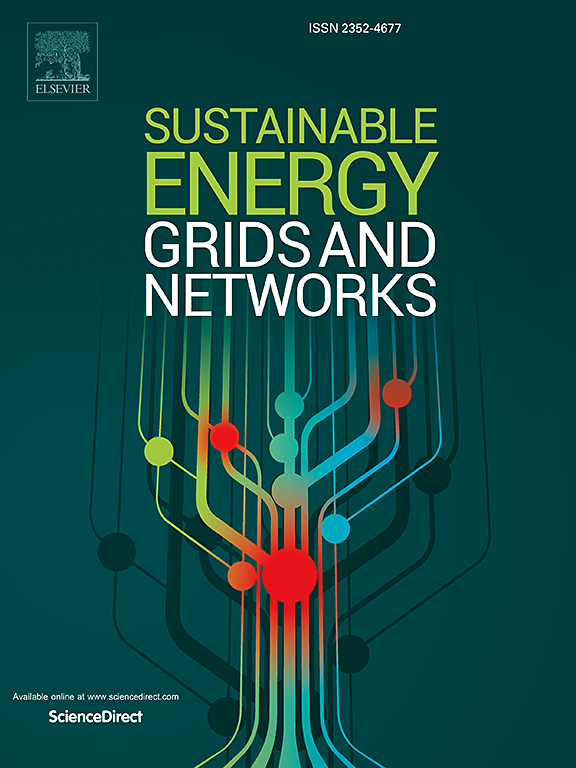Data strategy for active distribution networks: a framework to quantify data granularity impact on cyber-physical planning and operation
IF 4.8
2区 工程技术
Q2 ENERGY & FUELS
引用次数: 0
Abstract
The operational challenges of the integration of electric vehicles (EV), air conditioning and photovoltaic panels (PV) are prompting the upgrade of distribution grids, seen here as cyber-physical infrastructures. An important upgrading feature of the cyber-side is the electrical grid monitoring, which needs to expand both in data coverage and granularity. The challenge is to decide the data strategy, or in other words, which level of granularity is actually needed in active distribution networks. This work proposes a framework to assist grid planners in selecting the level of data expansion needed, by quantifying the impact of extended data granularity on control capabilities, and corresponding grid performance. The framework combines machine learning with AC optimal power flow and state estimation to select incremental upgrades of the cyber-physical infrastructure. Grid planning and operation are simulated and tested for the IEEE 33-bus test system over a 5-year span to assess the role of granularity in grid performance for different cyber-infrastructures. The results show that extending data granularity is critical for mitigating voltage violations under high penetration of EVs, air conditioning and PVs. By modeling the relationships between data, grid planning and operation, and grid performance, the framework supports efficient cyber system upgrades to mitigate operational violations while accounting for budget limitations.
主动配电网络的数据策略:量化数据粒度对网络物理规划和运行影响的框架
电动汽车(EV)、空调和光伏板(PV)集成的运营挑战正在推动配电网的升级,在这里被视为网络物理基础设施。网络侧的一个重要升级特征是电网监控,需要在数据覆盖和粒度上进行扩展。挑战在于决定数据策略,或者换句话说,在活动分布网络中实际需要哪种粒度级别。这项工作提出了一个框架,通过量化扩展数据粒度对控制能力和相应网格性能的影响,帮助网格规划者选择所需的数据扩展水平。该框架将机器学习与交流最优潮流和状态估计相结合,以选择网络物理基础设施的增量升级。在IEEE 33总线测试系统中对网格规划和运行进行了5年的模拟和测试,以评估粒度在不同网络基础设施的网格性能中的作用。结果表明,在电动汽车、空调和光伏的高渗透率下,扩展数据粒度对于减轻电压违规至关重要。通过对数据、网格规划和运行以及网格性能之间的关系进行建模,该框架支持有效的网络系统升级,以减轻操作违规,同时考虑到预算限制。
本文章由计算机程序翻译,如有差异,请以英文原文为准。
求助全文
约1分钟内获得全文
求助全文
来源期刊

Sustainable Energy Grids & Networks
Energy-Energy Engineering and Power Technology
CiteScore
7.90
自引率
13.00%
发文量
206
审稿时长
49 days
期刊介绍:
Sustainable Energy, Grids and Networks (SEGAN)is an international peer-reviewed publication for theoretical and applied research dealing with energy, information grids and power networks, including smart grids from super to micro grid scales. SEGAN welcomes papers describing fundamental advances in mathematical, statistical or computational methods with application to power and energy systems, as well as papers on applications, computation and modeling in the areas of electrical and energy systems with coupled information and communication technologies.
 求助内容:
求助内容: 应助结果提醒方式:
应助结果提醒方式:


